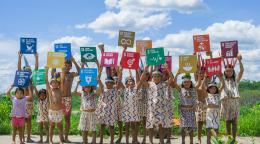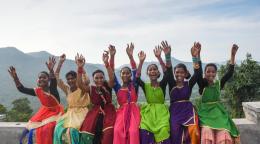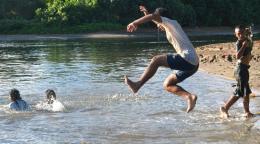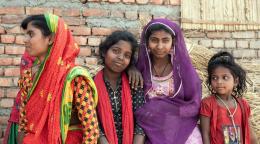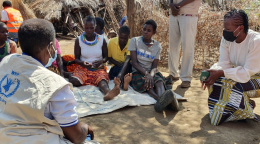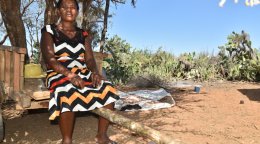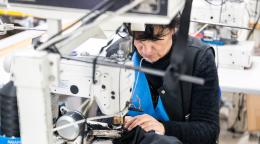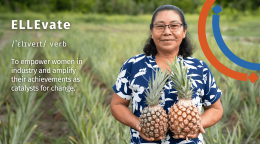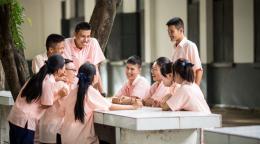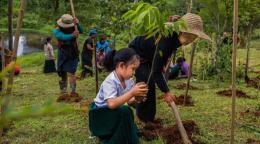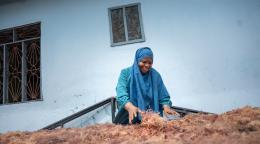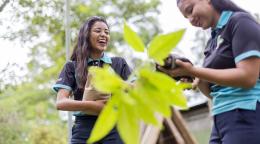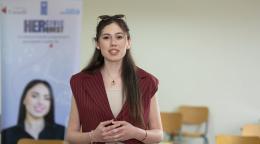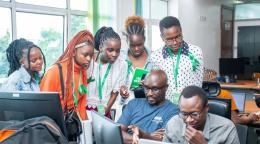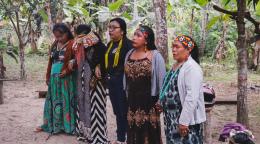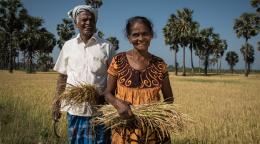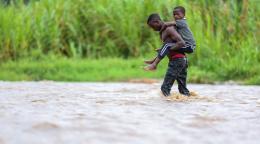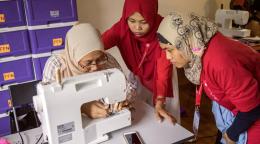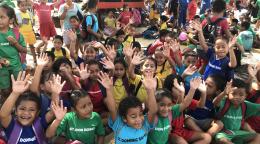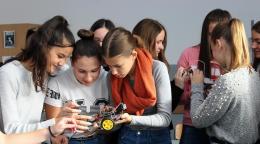Like Mother, Like Daughter: Pakistan's Girls Return to School
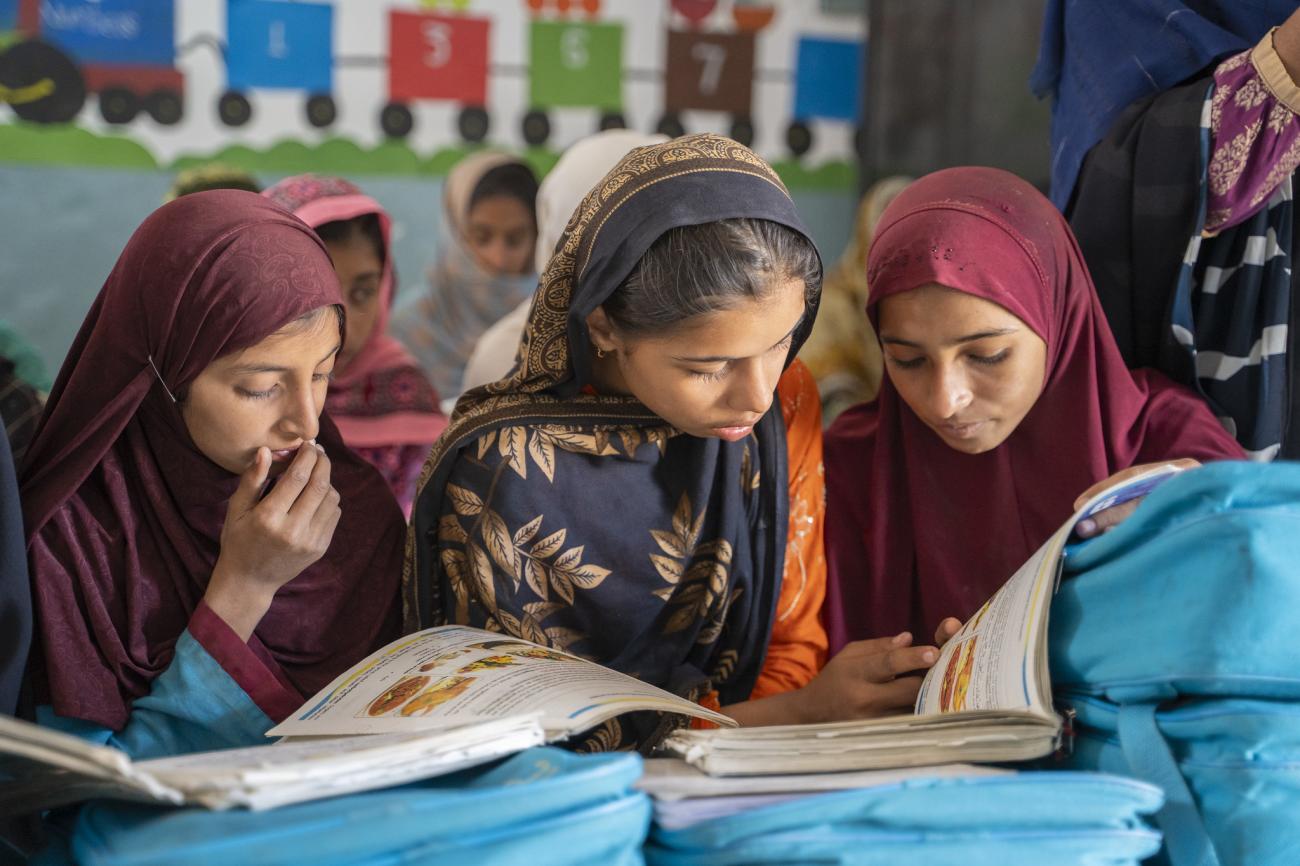
“I am so excited to be back in school. I am in grade 6 and hope to go to college and become a doctor one day.” ~Muqadas, 12
In a lively classroom in Dera Ghazi Khan, Punjab, Pakistan, Salma Qadeer and Muqadas Zahra sit side-by-side, ready to learn. The desks are occupied by workbooks and pencils. The walls around them are filled with colorful posters and student artwork.
Salma and Muqadas are more than just classmates. They are mother and daughter, on a shared educational journey.
Along the way, 12-year-old Muqadas and 35-year-old Salma have found a supportive community of teachers and fellow classmates. There is no judgment based on age or background, only a shared commitment to learning.
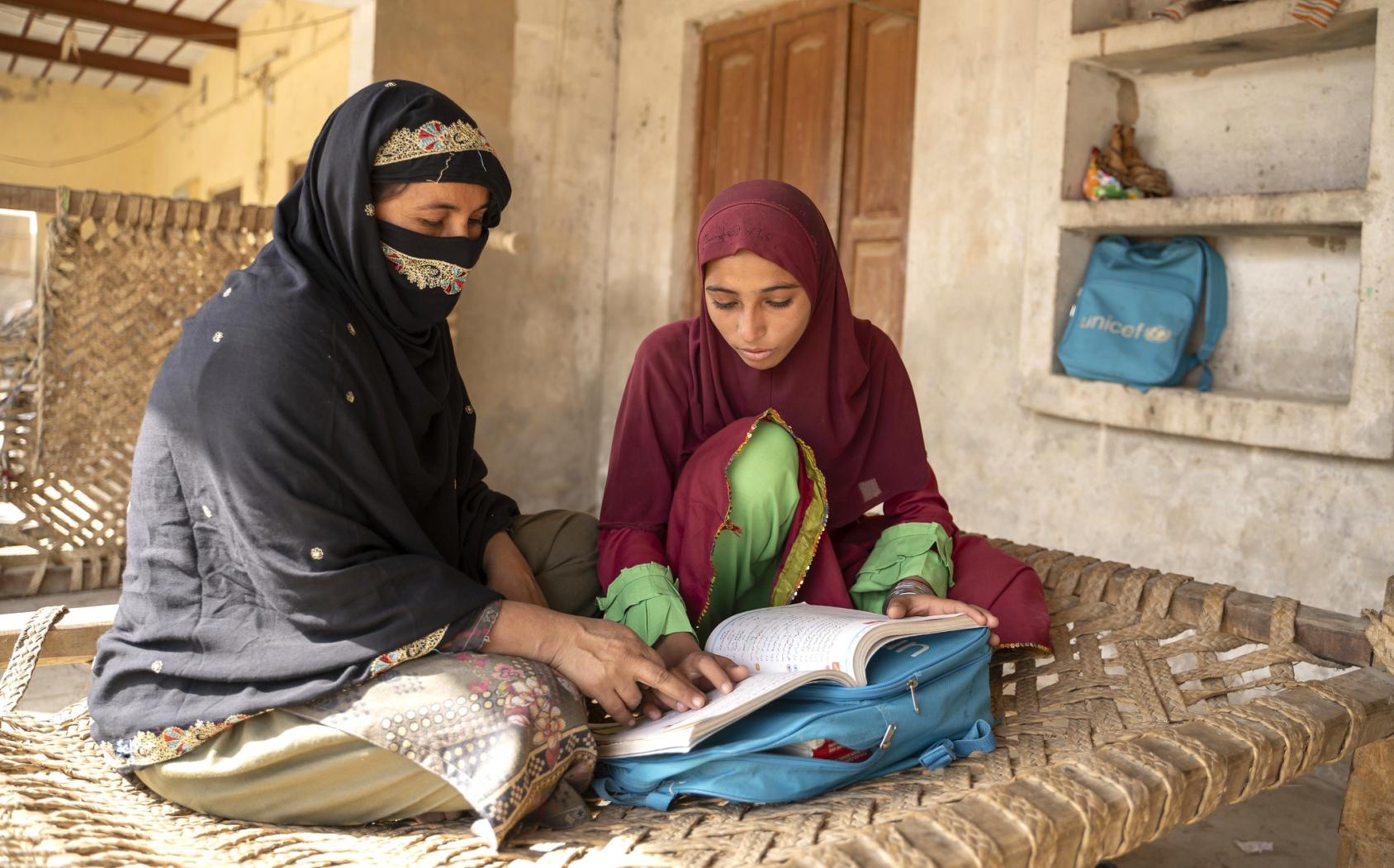
Thanks to funding from Education Cannot Wait (ECW), the global fund for education in emergencies and protracted crises within the United Nations, UNICEF Pakistan in collaboration with the local government and its implementing partner, has established eight Accelerated Learning Programme (ALP) elementary centres to address education barriers faced by girls, which have only worsened following the recent devastating floods in the country. The new ALP centres mean that Salma, Muqadas, and other girls and women in Pakistan have a safe, supportive environment to learn and grow in their community.
Education Challenges in the Village
“After completing fifth grade, I lost hope of studying further as there was no elementary school for girls in our village or the nearby areas. My parents are poor and couldn’t afford to send me to the city for further education. I could not study for almost a year. I stayed home, helping my mother with household chores, but missed school a lot," Muqadas shares.
Living in a village with limited resources and no schools for girls beyond the fifth grade, Muqadas was out of school for nearly a year after completing grade 5.
Years ago, Salma, Muqadas's mother, faced a similar situation. She had no choice but to end her schooling after fifth grade. Even though her father, a schoolteacher, believed in educating girls, there were no elementary schools in the area for her to attend.
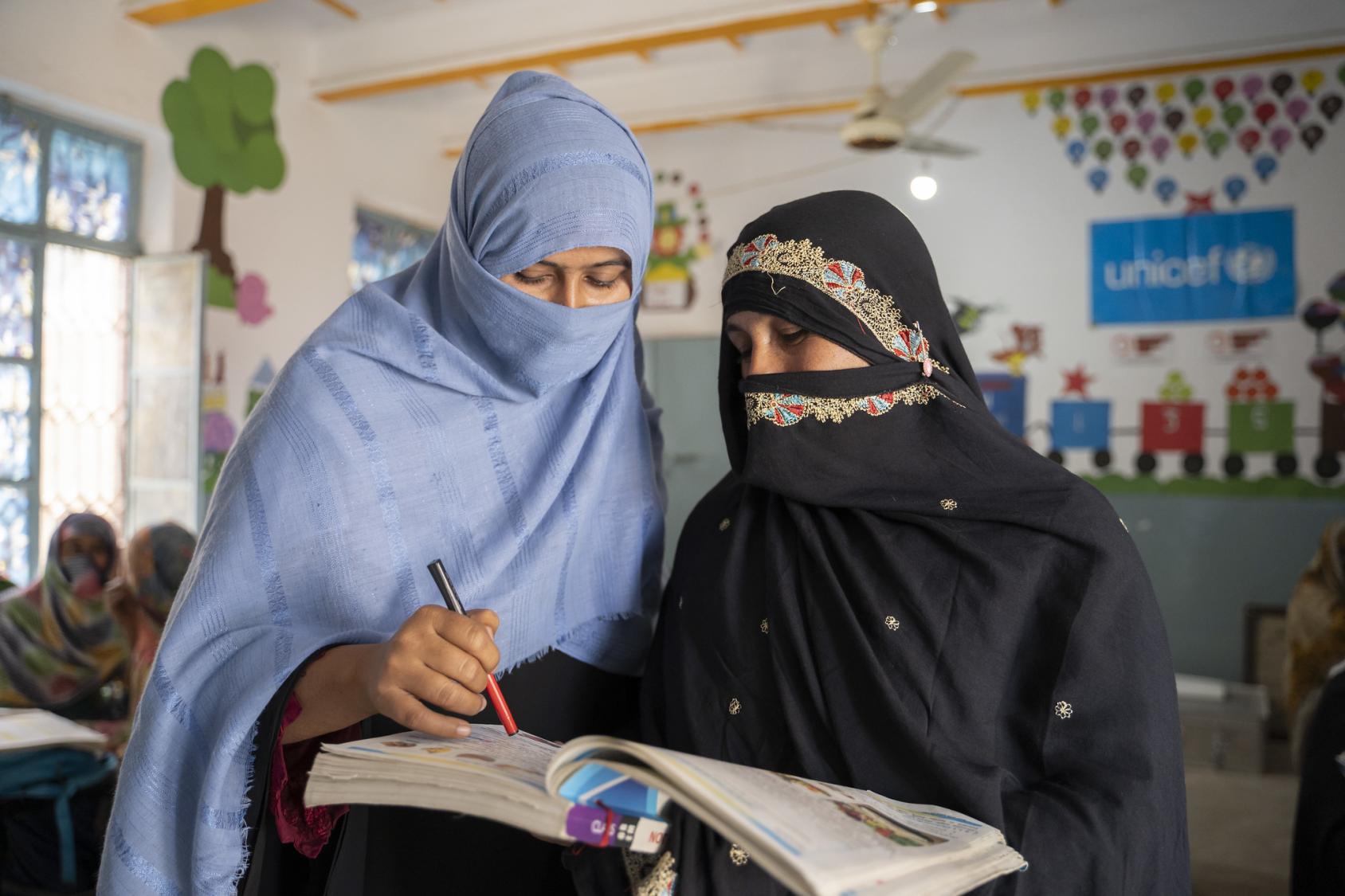
In such communities with limited resources and opportunities for girls, early marriage is often seen as a solution – and, really, only option – for girls, but this further interrupts their education, and restricts their future aspirations and opportunities. Salma faced this reality as a child.
“After fifth grade, I could not study further, and my parents married me off. Even after marriage, I wanted to get an education, but there was no opportunity as I had to take care of the family and there were no learning centres or schools for people my age.” ~Salma, 35
Challenging Societal Norms
When UNICEF piloted the ECW-funded ALP elementary in the area, Salma and her family initially hosted the centre in their home. Girls from all over the village gathered at their house to learn.
Watching her daughter and the girls dive back into learning, Salma felt inspired. She wanted to return to school as well. Salma shared her desire with her family and husband, expressing her wish to attend school alongside their daughter. Despite being a busy mother and wife, Salma was determined to break gender and societal norms by pursuing her education.
“I couldn’t imagine that I would ever enroll in a school again, along with my daughter," remarks Salma. "When I saw young girls studying in the ALP centres at our home, my interest renewed.”
As more girls joined, the small space became crowded, and the centre had to move to a bigger primary school. This move was initially a challenge for Salma, who juggled many other responsibilities at home as a mother of five children. However, her resolve to keep learning was strong and she persevered.
At home, Salma's husband offers strong encouragement to both his daughter and wife as they pursue their education, overcoming obstacles and paving the way for a better future for their entire family.
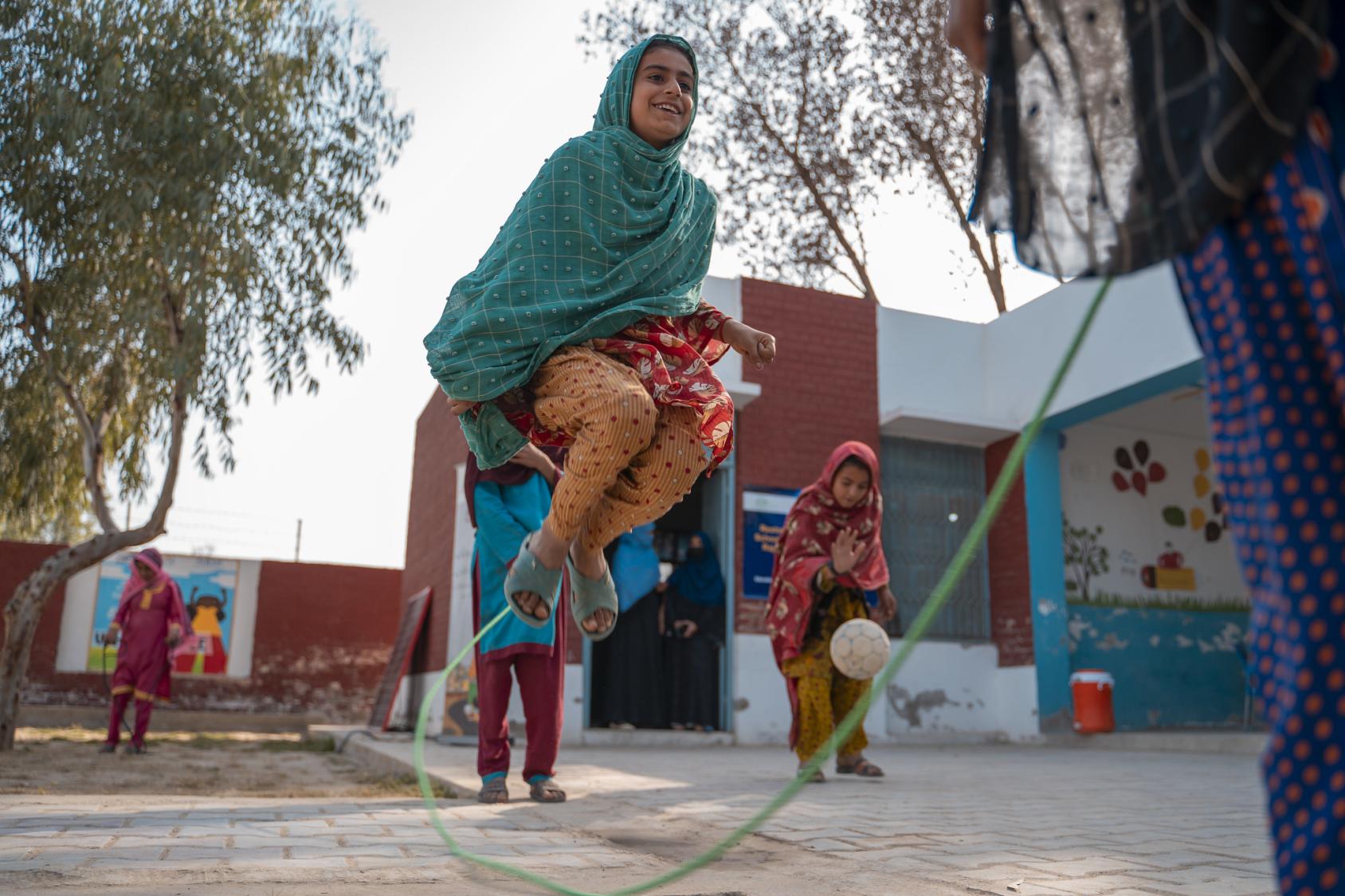
Learning Together at the Centre
At the centre, Muqadas and Salma immerse themselves in subjects such as math, Urdu and English. As they encounter challenging lessons, Salma leans on her daughter, and together they tackle difficult assignments.
“I feel good about coming to the school with my daughter. My teacher Ayesha encourages me and Muqadas also helps me with homework," says Salma.
Twelve-year-old Muqadas has found joy at the centre. Beyond allowing her to continue her academic studies, the centre has given her a chance to gain support from her caring teachers and also play games with friends.
“I feel safe and happy in the centre. The teachers are friendly, and they help us learn our lessons. We also have the opportunity to play," exclaims Muqadas.
Salma sees the big impact a chance at a continued education is having on her daughter, but also recognizes the impact for young women and mothers like her, saying, “We need more ALP centres as not only the young girls but even married women want to learn.”
Education Cannot Wait Funds ALP Centres
Pakistan is extremely susceptible to natural disasters worsened by climate change, such as droughts, floods and earthquakes. The extraordinary monsoon rains in 2022 caused massive flooding and landslides across the nation. More than 1,700 people lost their lives, and over 30,000 schools were damaged or destroyed. The 2022 floods in Pakistan impacted 33 million people, half of them children.
Additionally, the country hosts over 2 million Afghan refugees, making it the fifth largest refugee-hosting country in the world. Today, Pakistan has the second-highest number of out-of-school children in the world at 26.2 million, including 13.8 million girls. In response to these crises, ECW has invested $18.2 million since 2022 to support the education of the most marginalized children, youth and teachers in Pakistan.
The new ECW-supported ALP centres provide hope for out-of-school girls and women unable to access education due to the unavailability of schools in their area. The programmes provide students the opportunity to complete their middle school education in 20 months while maintaining the required learning outcomes.
Established as part of UNICEF’s Flood Response Programme in two flood-affected districts of South Punjab – Dera Ghazi Khan and Rajanpur – the centres offer a flexible learning model, bringing learning solutions to the doorsteps of girls and addressing concerns around access and safety.
Recent estimates from strategic partners indicate that ECW investments in Pakistan have reached more than 240,000 children in the country, providing both urgent educational interventions to combat the effects of climate change and long-term support through the Multi-Year Resilience Programme. Additionally, ECW is piloting an Anticipatory Action programme in Pakistan to support emergency readiness and response to climate disasters.
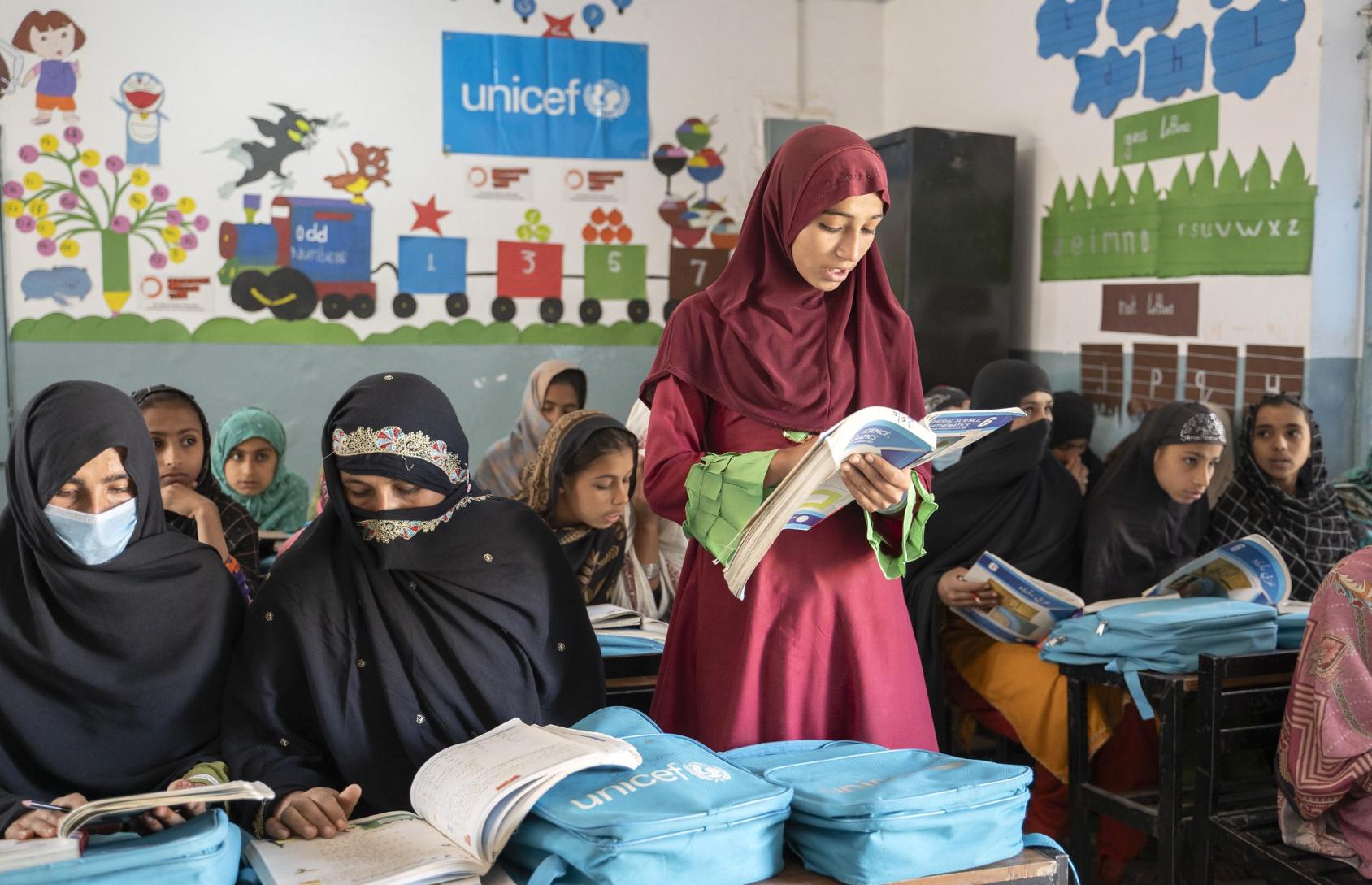
Investing in Girls’ Futures
For girls and women who once believed that education was unattainable, initiatives like the ALP are life-changing.
Returning to school means more than just learning for Salma and her daughter, Muqadas. It’s an opportunity to overcome past barriers and seek a future beyond domestic duties.
Investing in girls’ education is essential. It provides them with the agency to shape their future. With education, girls break the cycle of poverty and support economic prosperity within their families and communities. An investment in girls' education is an investment in an equitable and fairer future for all.
Salma hopes that she and Muqadas have broken the cycle of an education short, and have instead set a new norm for the generations of girls that will come after them. “I want all my children to be educated so they can progress in life."
This article was first published by Education Cannot Wait here. Education Cannot Wait (ECW) is the global, billion-dollar fund for education in emergencies and protracted crises within the United Nations.
